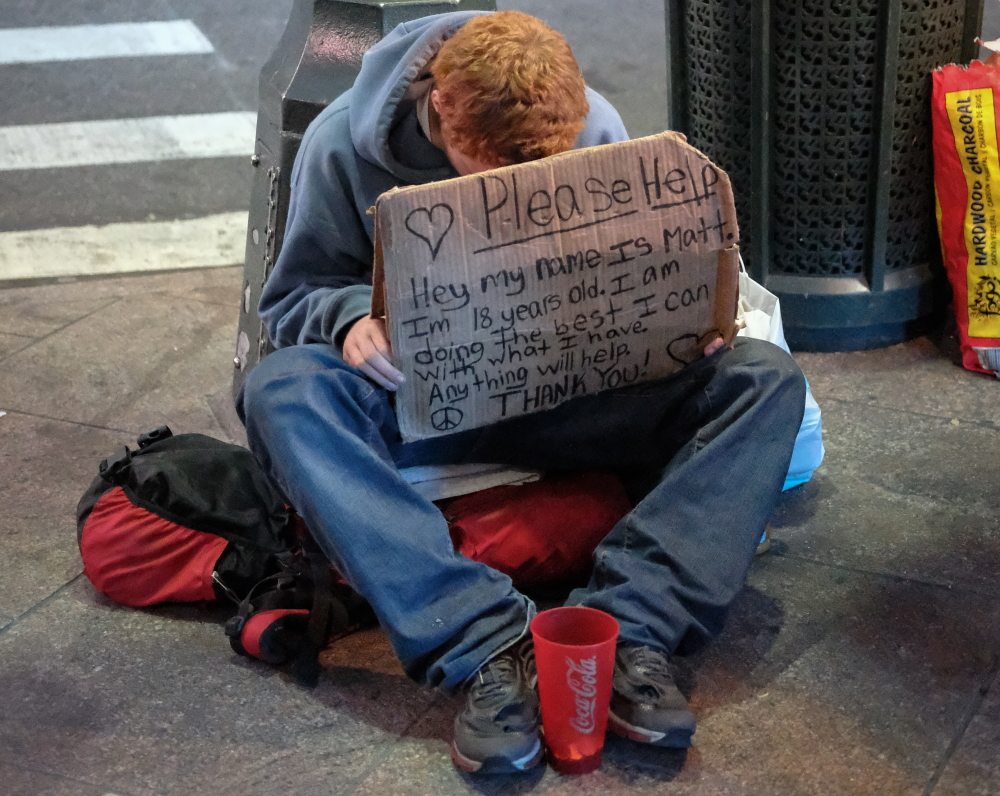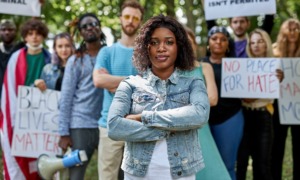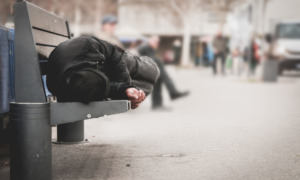As Maddox Guerilla tells it, a couple months after he was granted space in a New York City homeless shelter for youth in 2017, he got kicked out. During that brief span of time, he’d turned 21, too old to remain there. When he resisted leaving, shelter employees started packing and trashing his things. That night, he slept at his girlfriend’s parents’ Manhattan apartment.
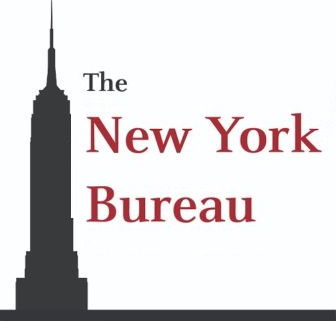 Four months later, while still in that borrowed bedroom, some advocates for homeless youth asked his suggestion on what would most benefit young adults without a home to call their own.
Four months later, while still in that borrowed bedroom, some advocates for homeless youth asked his suggestion on what would most benefit young adults without a home to call their own.
“Cash,” he said.
Next month, a $2 million pilot project will deposit $550 twice a month into the bank accounts of 30 to 40 homeless, 18- to 24-year old New Yorkers for at least the next two years so they can rent an apartment with roommates.
Called the Trust Youth Initiative, the project is being co-launched by Point Source Youth, a Brooklyn-based organization that took to heart that suggestion from Guerilla, a now 25-year-old advocate for homeless youth and co-coordinator of the New York City’s Youth Action Board.

Courtesy Maddox Guerilla
Maddox Guerilla
“There’s a huge waiting list for youth experiencing homelessness. Finding the youth is not hard if you find a service provider plugged into the system,” said Point Source Youth co-founder Larry Cohen, noting that other nonprofits will screen and select the homeless youth and young adult recipients of that cash.
His organization’s other housing programs have included host homes where youth are placed with a screened mentor and rapid re-housing, which provides rental subsidies to young people. But there aren’t enough host homes or participating landlords to meet the need, said Cohen, whose organization designed the pilot program with researchers from the University of Chicago’s Chapin Hall center on youth policy.
Research suggests cash transfers boost school attendance, use of medical care and savings
Direct cash transfers are not new. An analysis of 165 studies, published in October 2018 in the Journal of Public Policy, found that cash transfers reduced poverty, increased school attendance and use of health care services, improved savings and investment and gender equity in the home. The Vancouver, Canada-based Foundation for Social Change’s 2021 report on its New Leaf cash-transfer program concluded that a one-time $5,000 cash transfer to homeless adults improved their ability to be in stable housing, buy food, save and, for those who smoked, consumed alcohol or illicit drugs, to spend less on those items.
“Research does show that [cash transfers have] proven effective with various other populations,” said Jamie Powlovich, executive director of New York City’s Coalition for Homeless Youth, which is not involved in the Trust Initiative. “We hope it follows the other research and proves beneficial.”
“As a researcher, I remind people, direct cash transfers are one of the most well-evaluated strategies for eliminating poverty,” said Matt Morton, a Chapin Hall research fellow.
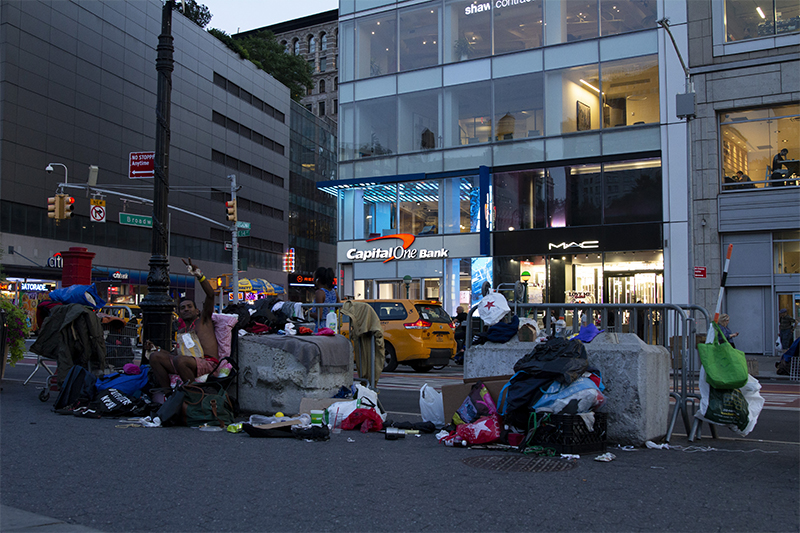
Niamh McDonnell/Juvenile Justice Information Exchange
New York homeless camp on a New York City street in 2019.
While the funds are intended for housing, the no-strings-attached project does not require the youth and young adult recipients of those funds to account for how they spend the cash. “There are the things young people do for money that actually puts them in danger,” Guerilla said. “Money isn’t going to solve everything, but I do think about it as a preventative tool.”
While the nearly $30,000 that youth will get over those two years may sound like a lot, that’s less than the $30,000 to $40,000 per year being spent on a single bed in a homeless shelter, Cohen said. Transitional living programs that offer longer-term housing than shelters cost around $20,000 to $30,000 per person per year, he said.
Both shelters and transitional homes, however, tend to be less stable options than living with roommates and sharing rental costs, Cohen said.
Two years of direct cash transfers are intended to provide more housing security, over the long haul. But the project leaders said they are aware that such security isn’t guaranteed. “There’s nothing magical about two years,” Morton said.
“We all have internalized biases about young people,” Morton said. “And they’re often ageist, rooted in racism and false biases about how people become homeless.”
The young people in the focus groups conducted as part of the development of the Truth Initiative said that the cash could allay some financial worries and let them attend to their self-development, including, for example, by attending college and planning for careers paying a decent wage.
The cash recipients have the option of using other Trust Initiatives resources, including help with budgeting, banking, rent leases, real estate brokers, school and navigating roommate relationships. Making that participation voluntary is critical, said Cohen, noting that city-run youth shelters and transitional independent living programs often mandate curfews, life skills training and meetings with case managers, for example, in exchange for funding or housing. But that doesn’t work for everyone, Cohen argued. “A system that doesn’t trust people,” he asked, “why would that work?”
Critics questioned the cash giveaway
Early on, plans for giving youth money with no conditions prompted some pushback, including from administrators in government agencies working with homeless youth, Cohen and Morton said.
“We all have internalized biases about young people,” Morton said. “And they’re often ageist, rooted in racism and false biases about how people become homeless.”
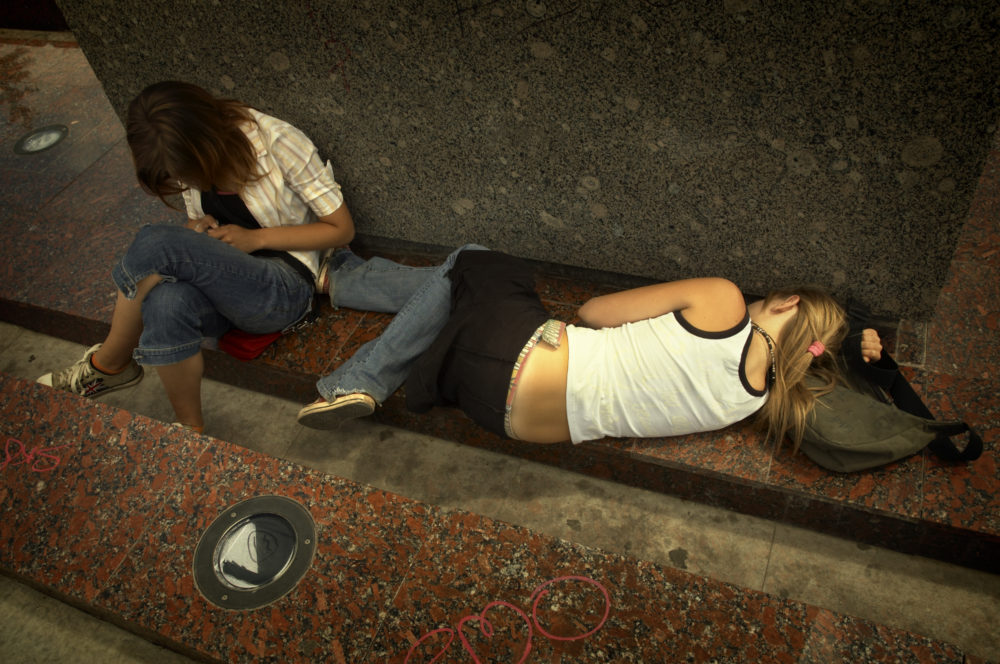
kuzmaphoto/Shutterstock
Two homeless teens rest in a city park.
While 67% of city residents, overall, are of color, Chapin Hall has estimated that 95% of homeless youth in New York City are of color and 42% are LGBTQ.
The Ali Forney Center for LGBTQ homeless youth is among nonprofits that will screen and enroll program participants and provide the services. Up Together, formerly the Family Independence Initiative, will administer the cash.
“We are eager to see what the eligibility criteria will be,” said Powlovich, of the Coalition for Homeless Youth. “and … promote the screening and application process to make sure there’s diverse representation in the pool of young people that are qualified.”
Now stably housed in the Bronx and working as a consultant on youth homelessness, Guerilla said he is ecstatic to see the program get underway. “This all really came from an idea,” said Guerilla, who also hopes the program will expand. “From being open, providing space for ideas that are out of the box and … intentional partners are working to make things happen.”


